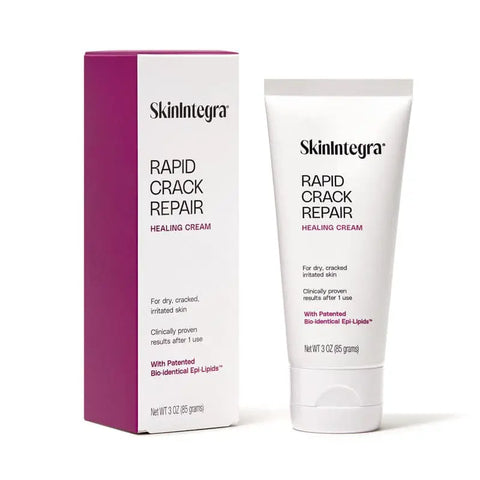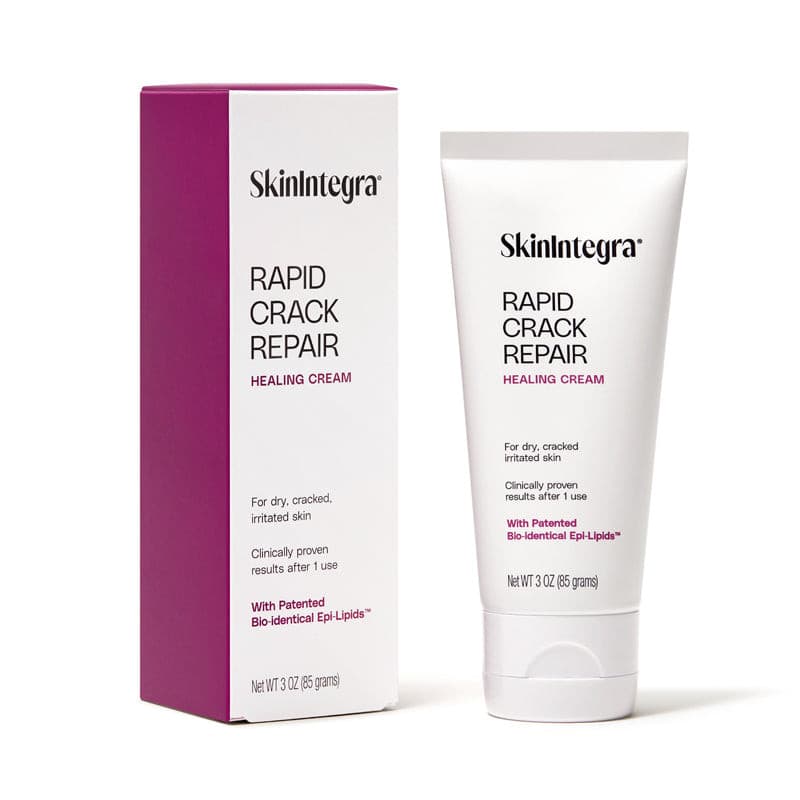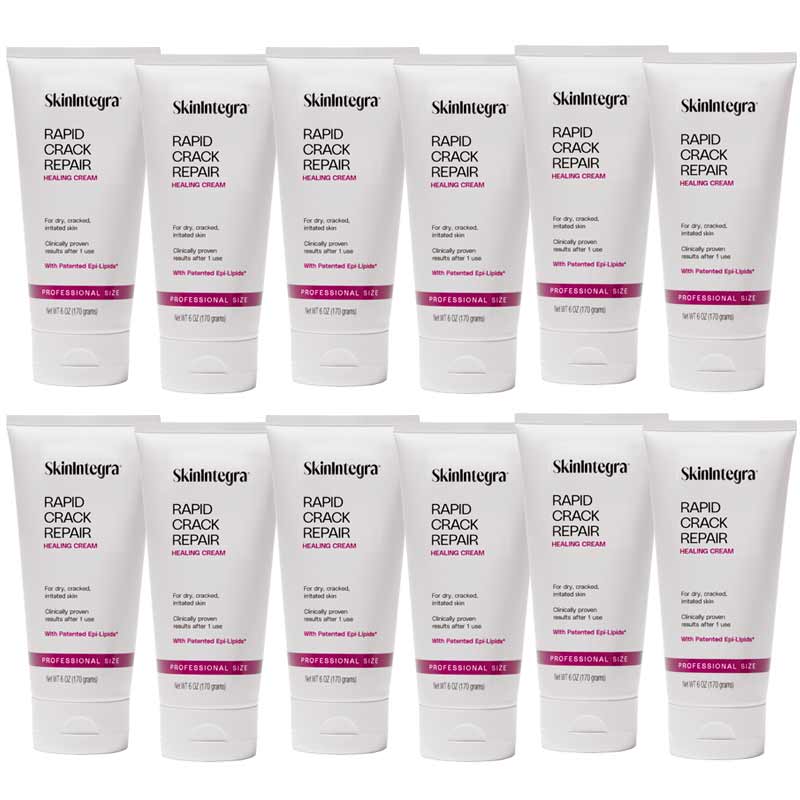As a healthcare professional, frequent hand washing is an essential part of your job. It helps protect you, your patients, and your colleagues from infections. However, constant exposure to water, soap, and sanitizers can take a toll on your skin, leading to dryness, irritation, and even painful cracks. These symptoms can make performing routine tasks—such as putting on gloves, handling medical instruments, and even typing—uncomfortable and challenging.
In this article, we’ll explore why frequent hand washing causes painful cracked hands, how healthcare workers can prevent and treat this issue, and when to seek medical help. By implementing these skin care strategies, you can maintain proper hygiene while keeping your hands healthy and comfortable.
Why Frequent Hand Washing Causes Cracked Hands
1. Stripping of Natural Oils
Every time you wash your hands, the soap removes dirt, bacteria, and natural oils that keep your skin hydrated. Healthcare workers, who wash their hands dozens of times per shift, are especially vulnerable to this issue. Alcohol-based hand sanitizers further contribute to dryness by evaporating rapidly, stripping away moisture.
2. Hot Water Damage
Many hospitals and clinics encourage hot water use for hygiene, but hot water accelerates moisture loss by breaking down the skin’s lipid barrier. Using lukewarm water instead helps preserve the skin’s protective layer.
3. Frequent Exposure to Water and Soap
Healthcare professionals often use antimicrobial soaps that contain harsh detergents. While effective at killing germs, these soaps can be extremely drying, especially with repeated use throughout the day.
4. Wearing Gloves for Extended Periods
Gloves protect against contamination, but prolonged wear can trap sweat and moisture, leading to skin maceration, irritation, and dermatitis. Latex gloves, in particular, can exacerbate skin reactions.
5. Irritant Contact Dermatitis
Handwashing-related irritant contact dermatitis is common among healthcare workers. Symptoms include redness, itching, burning, and cracked skin, making it difficult to carry out essential medical duties.
Symptoms of Cracked Hands Due to Overwashing
-
Persistent dryness and flaking skin
-
Itchiness and irritation
-
Redness and inflammation
-
Deep cracks or fissures, especially around the knuckles and fingertips
-
Pain or stinging sensation when exposed to soap or sanitizer
-
Difficulty wearing gloves due to discomfort
-
Sensitivity to certain skincare products
-
Scaling or thickened skin over time
How Healthcare Workers Can Prevent and Treat Cracked Hands
1. Use a Gentle, Moisturizing Soap
Choose mild, fragrance-free soaps designed for sensitive skin. Look for soaps with glycerin, shea butter, or ceramides, which help maintain hydration.
2. Wash with Lukewarm Water
Avoid using hot water, which strips moisture from the skin. Lukewarm water is just as effective at cleaning hands while minimizing dryness.
3. Pat Dry Instead of Rubbing
Instead of aggressively drying your hands with paper towels, pat them dry gently, until they are completely dry.
4. Apply a Barrier Cream After Every Wash
To lock in hydration, apply a rich, fragrance-free moisturizer immediately after washing. Choose creams containing:
-
Dimethicone, a silicone-based polymer that serves as a protective barrier on the skin
-
Glycerin and hyaluronic acid to draw moisture into the skin
-
Ceramides and fatty acids to strengthen the skin barrier
5. Use a Healing Ointment for Deep Cracks
For painful cracks, apply a healing ointment like SkinIntegra’s Rapid Crack Repair Cream before bed. Wearing cotton gloves overnight can enhance absorption and accelerate healing.
6. Limit Hand Sanitizer Use When Possible
Hand sanitizers with high alcohol content are extremely drying. When soap and water are available, opt for handwashing instead. If sanitizer is necessary, apply a moisturizer immediately after it dries.
7. Wear Moisturizing Gloves at Night
A nighttime hand treatment can help healthcare professionals recover from daytime dryness. Apply a healing ointment and wear moisturizing gloves overnight to allow deep penetration and repair.
8. Choose Gloves Wisely
-
Use powder-free, hypoallergenic gloves to reduce irritation.
-
Change gloves frequently to avoid moisture buildup inside.
-
Apply a light layer of moisturizer before wearing gloves to create a protective barrier.
9. Use a Humidifier in the Workplace and at Home
Hospitals and clinics tend to have dry air, which can worsen skin irritation. Running a humidifier at your workstation or at home helps maintain hydration.
10. Stay Hydrated and Maintain a Nutrient-Rich Diet
Drinking plenty of water and consuming foods rich in omega-3 fatty acids, vitamins A, C, and E, and zinc can support skin repair and resilience.
SkinIntegra’s Rapid Crack Repair Cream: Faster Relief from Painful Cracked Hands

Cracked hands can be extremely painful and in some cases challenging to heal. This is where SkinIntegra’s Rapid Crack Repair Cream plays a vital role. Here’s why it has been shown to provide faster relief than conventional hand creams:
1. Clinically Proven Fast Relief
SkinIntegra’s cream is scientifically designed to repair and restore dry, cracked skin rapidly. In a clinical study, 100% of people enrolled experienced dry, cracked skin relief in the first 24 hours.
2. Safe for Sensitive Skin
Free from parabens, dyes, and fragrances, this cream is gentle on sensitive or sensitized skin, making it suitable for a wide range of users.
3. Boosts Healing
Skintegra's patented composition precisely replenishes the lipids and moisturizers naturally found in the skin barrier including ceramides, essential fatty acids, hyaluronic acid, vitamin C, and minerals. It is proven to rapidly restore the skin barrier and protect the skin from minor infections.
4. Fast Absorbing
Unlike conventional hand creams that can be greasy and hard to rub in, SkinIntegra absorbs quickly and is easy to apply. It excludes traditional occlusive ingredients such as mineral oil that sit on the surface of the skin.
5. Long-Term Protection
By locking in moisture and preventing cracks, SkinIntegra’s cream acts as a barrier against environmental damage, making it a vital tool for maintaining healthy hands year-round.
When to Seek Medical Help
If your hands develop severe cracks, persistent redness, or signs of infection (such as pus, swelling, or warmth), consult a dermatologist or occupational health specialist. You may need prescription-strength creams or specialized treatments to manage contact dermatitis or eczema.
Conclusion
For healthcare professionals, hand hygiene is non-negotiable, but it doesn’t have to result in painful, cracked skin. By choosing gentle products, moisturizing consistently, and implementing protective measures, you can maintain healthy hands while upholding the highest hygiene standards.
Prioritizing proper skin care ensures that you can perform your duties comfortably and effectively. If symptoms persist or worsen, seek medical advice to address any underlying skin conditions. Taking proactive steps now will help preserve the health and integrity of your skin for the long term.





